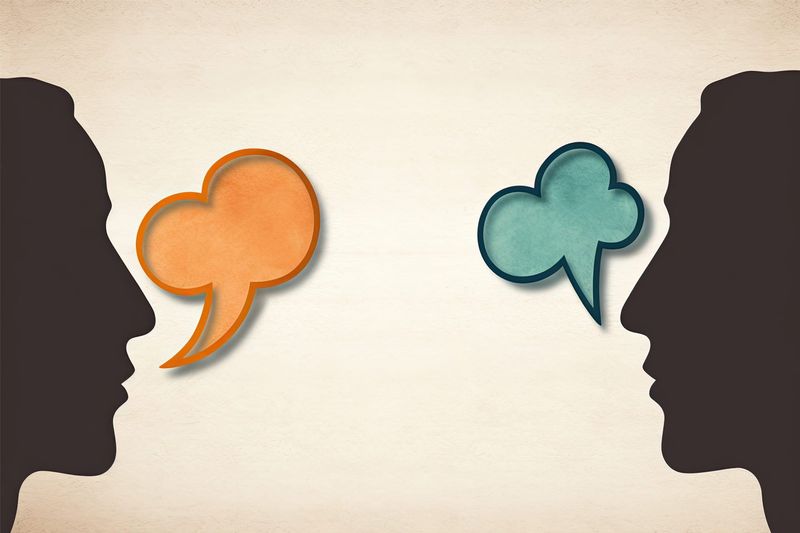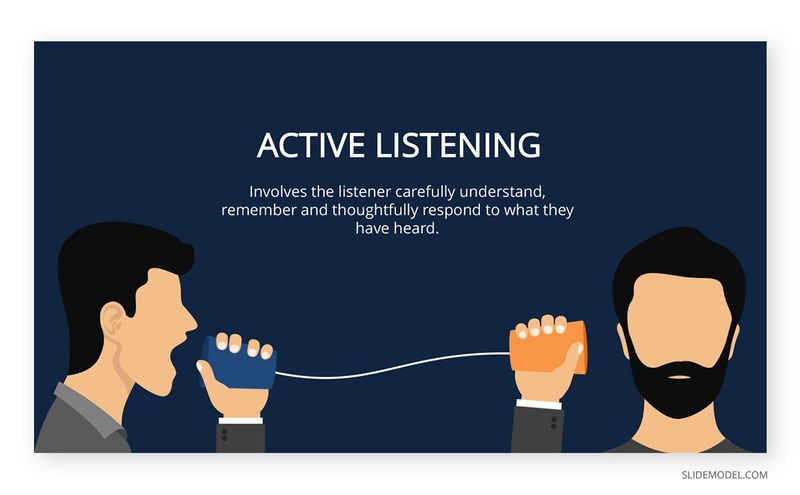22 Ways People Reveal Their True Colors Without Even Realizing It
In everyday interactions, subtle behaviors often reveal more about a person than they might intend. From their tone with a waiter to how they handle winning or losing, each action can serve as an unintentional glimpse into their true character.
This blog explores 22 ways people inadvertently let their genuine colors shine through, offering insights into their values, mindset, and core principles. These observations, while seemingly minor, can speak volumes about who they really are beneath the surface.
1. How they treat people who “can’t do anything for them”

A person’s true nature often shines through in how they treat those who are unable to offer anything in return. This is not just about outward politeness but genuine care and respect. When someone consistently behaves with kindness and empathy towards individuals who are in positions of lesser power or influence, it speaks volumes about their character.
Conversely, disregard or dismissiveness towards such individuals can reveal a self-serving or indifferent personality. It may not be a conscious action, but these interactions highlight genuine personality traits. Observing how someone interacts with those who seemingly offer no material benefit can be a true test of their character. Actions towards the less privileged can be very telling.
2. Whether they take responsibility or deflect blame

When things go awry, the way a person handles responsibility can reveal much about their character. Some individuals step up and take ownership, acknowledging mistakes and working towards solutions. This accountability reflects integrity and maturity.
On the other hand, there are those who effortlessly shift the blame onto others, evading any personal responsibility. This tendency to deflect can indicate a lack of personal growth or an unwillingness to face shortcomings.
In observing these reactions, one can discern a person’s capacity for honesty and self-reflection. Such moments offer a window into their willingness to grow and learn from experiences, shaping how they’re perceived by others.
3. Their reaction to other people’s success

Celebrating another person’s success can sometimes be challenging, yet the ability to genuinely rejoice in someone else’s accomplishments is a mark of true confidence and camaraderie. Those who can celebrate others’ achievements without envy possess a generous spirit.
In contrast, individuals who respond with jealousy or indifference may reveal insecurity or competitiveness. Their lack of enthusiasm might suggest an internal struggle with self-worth.
Observing how someone reacts to the success of others can provide insight into their emotional maturity and self-esteem. An authentic celebration of others’ victories showcases not only support but a profound sense of self-assurance and goodwill.
4. How often they interrupt in conversation

The art of conversation is a delicate balance between speaking and listening. Frequent interruptions can indicate a need for dominance or a lack of respect for others’ thoughts. This behavior often unintentionally reveals a self-centered or impatient character.
Conversely, those who wait their turn and listen attentively are usually seen as considerate and empathetic. Their ability to value others’ contributions reflects humility and respect.
By noticing how someone navigates conversations, you can gauge their level of respect and empathy for others. The frequency of interruptions serves as a subtle cue to their true personality, revealing much about their social grace and emotional intelligence.
5. How they act when no one’s watching

True character is often revealed in moments of solitude, actions taken when there’s no audience to impress. Individuals who consistently act with integrity when alone demonstrate an authentic and principled nature. These private moments speak volumes about their honesty and moral compass.
In contrast, those who only display positive behaviors for public approval might lack genuine conviction. The disparity between their public and private actions can reveal a performative rather than authentic nature.
Observing what someone does in solitude can be remarkably telling. These actions highlight their true ethical standards and whether they are guided by intrinsic values or external validation.
6. Whether they say “thank you” without prompting

Expressions of gratitude can reveal much about a person’s upbringing and outlook on life. A spontaneous “thank you” reflects genuine appreciation and humility. It shows an awareness of others’ contributions and an acknowledgment of shared human experiences.
Meanwhile, those who need to be prompted may not fully grasp the importance of gratitude, hinting at a more self-focused perspective. This lack of acknowledgment can indicate a sense of entitlement or unawareness.
The frequency and spontaneity of gratitude expressions help uncover a person’s appreciation level and social awareness. Such moments, though small, highlight the underlying respect and consideration they hold for others.
7. The tone they use with service workers

Interactions with service workers can be incredibly revealing. A respectful and kind tone towards those in service positions reflects empathy and respect for all individuals, regardless of their role. Such interactions indicate an understanding that everyone’s work deserves appreciation.
In contrast, a dismissive or rude tone can highlight a lack of empathy and a hierarchical view of human worth. This behavior might suggest an inflated sense of self-importance or insensitivity.
Observing how someone speaks to service workers provides insights into their view of equality and respect. These exchanges often reflect deeper attitudes towards social hierarchies and individual value.
8. How quickly they bring up others’ flaws

Criticism can be constructive, but the frequency and manner in which someone highlights others’ flaws can reveal underlying insecurities or negativity. Individuals quick to point out imperfections might be projecting their insecurities or attempting to elevate themselves.
Conversely, those who focus on positive aspects and provide feedback thoughtfully tend to possess a confident and empathetic nature. Their approach suggests a desire for growth and improvement rather than judgment.
By examining how often someone criticizes, you can glimpse their level of self-assurance and positivity. This behavior uncovers their tendency towards judgment or encouragement, shedding light on their interpersonal dynamics.
9. How they speak about ex-friends or partners

The way someone talks about past relationships offers valuable insights into their character and emotional maturity. A person who discusses ex-friends or partners with understanding and respect demonstrates emotional intelligence and closure.
Alternatively, speaking negatively or spitefully about past connections may indicate unresolved issues or a tendency to hold grudges. This perspective can suggest a lack of personal growth or a difficulty in moving on.
Observing these conversations reveals how a person processes past experiences and their capacity for forgiveness. Their narrative about past relationships highlights their emotional development and ability to learn from history.
10. Whether they share credit—or hoard it

Teamwork often involves shared victories, and the willingness to distribute credit fairly speaks volumes about a person’s integrity and leadership qualities. Individuals who generously share credit typically possess confidence and a collaborative spirit.
In contrast, those who hoard recognition might exhibit insecurity or a desire for personal validation. Their reluctance to acknowledge others’ contributions can reveal a self-centered nature.
Watching how credit is allocated in group efforts can be revealing. It sheds light on an individual’s sense of fairness and their comfort with collective achievement. Such observations highlight their propensity for inclusivity or self-promotion.
11. Whether they listen just to respond

Engaging in genuine conversation requires more than hearing words; it’s about understanding and empathizing. Listening with the intent to respond rather than understand can suggest a self-focused mindset.
Conversely, those who truly listen, absorbing and reflecting on what’s said, display empathy and respect. This behavior indicates a supportive and thoughtful nature.
Noticing how someone listens reveals their capacity for empathy and connection. It highlights whether they view conversations as mutual exchanges or opportunities to assert their views. This distinction often uncovers deeper insights into their interpersonal skills and emotional intelligence.
12. How they react to being told “no”

Reactions to rejection can be incredibly revealing. Those who handle a “no” with grace and understanding exhibit maturity and resilience. Such reactions reflect their ability to manage disappointment and respect boundaries.
In contrast, individuals who react poorly, with anger or persistence, may struggle with entitlement or impatience. These responses can suggest difficulty in accepting limits or respecting others’ decisions.
By observing reactions to denial, you gain insight into a person’s adaptability and humility. It highlights their approach to challenges and setbacks, revealing their emotional strength and regard for others’ autonomy.
13. Whether they ask questions—or just talk about themselves

A balanced conversation involves curiosity about others, not just self-expression. Individuals who ask questions and show interest in others’ lives display empathy and humility. Their curiosity indicates a genuine desire to connect and understand.
Conversely, those who dominate conversations with self-focused narratives might lack awareness or interest in others, suggesting a self-centered nature. Their reluctance to inquire about others can reveal an egocentric perspective.
Observing the balance of questions and self-disclosure reveals much about a person’s social engagement. It highlights their ability to foster meaningful connections and their interest in mutual exchanges, providing a glimpse into their social priorities.
14. If they joke in a way that makes people uncomfortable

Humor can be a double-edged sword, serving as a means to connect or alienate. Jokes that make others uncomfortable often reveal insensitivity or a lack of empathy. Such humor can indicate an inability to gauge social cues or a disregard for others’ feelings.
Conversely, those who use humor to uplift and include show awareness and kindness. Their ability to read the room reflects emotional intelligence and respect.
Analyzing the nature of someone’s jokes offers insights into their social awareness and empathy. It highlights whether they use humor as a bridge or a barrier, revealing much about their interpersonal intentions and cultural sensitivity.
15. Whether their apologies come with change

Apologies mean little without subsequent change. Those who genuinely alter their behavior post-apology demonstrate accountability and growth. This willingness to evolve signifies respect and sincerity.
In contrast, repeated apologies without change can suggest a superficial understanding of wrongdoing or insincerity. Such patterns reveal a reluctance to learn from mistakes.
Observing whether apologies lead to change offers insights into a person’s commitment to self-improvement. It highlights their respect for others’ feelings and their ability to enact meaningful change, reflecting genuine regret and a desire for personal development.
16. How they handle small inconveniences

How someone deals with life’s minor inconveniences can reveal their patience and emotional resilience. Those who remain calm and composed during small disruptions often display strong self-regulation and adaptability.
Conversely, individuals who react with frustration or anger to trivial setbacks may reveal deeper irritability or lack of coping mechanisms. These reactions can suggest an underlying stress or inability to manage minor challenges gracefully.
Observing reactions to small annoyances provides a window into a person’s emotional regulation. It reflects their capacity for patience and their overall approach to life’s unpredictabilities, offering valuable insights into their character.
17. Whether they follow through without reminders

Reliability is often showcased through consistent follow-through. Individuals who complete tasks without needing reminders demonstrate responsibility and integrity. Their independence in fulfilling commitments reflects trustworthiness and discipline.
On the other hand, those who require constant prompting may lack initiative or commitment, suggesting unreliability or a lack of prioritization. This behavior can highlight an absence of accountability.
By noting who follows through on promises, you can assess a person’s dependability. It reveals their dedication to commitments and their respect for others’ time and expectations, illustrating their overall reliability in personal and professional settings.
18. How they respond to someone else’s vulnerability

Vulnerability in others can evoke various responses, revealing empathy levels and emotional maturity. Those who offer support and understanding when someone is vulnerable demonstrate compassion and kindness. Their ability to be present and supportive reflects a deep emotional intelligence.
Conversely, those who dismiss or minimize vulnerability may struggle with empathy or discomfort, highlighting emotional disconnect or insensitivity.
Observing how someone responds to vulnerability can provide insights into their capacity for empathy and support. It reveals their readiness to engage with emotions, showing their ability to offer comfort and understanding when it matters most.
19. Whether they gossip to bond

Gossip can be a tempting shortcut to connection, but it often reveals more about the gossiper than the subject. Those who bond over speaking negatively about others may indicate insecurity or a lack of authentic connection. This behavior often highlights a need for validation at the expense of others.
Conversely, individuals who avoid engaging in gossip usually prioritize integrity and mutual respect. Their refusal to partake in negative talk reflects a commitment to positivity and authenticity.
Observing gossip habits offers insights into someone’s approach to relationships. It reveals whether they build connections through honesty or negativity, reflecting their values and integrity.
20. Whether they make space—or take it

In social settings, the ability to make space for others reveals generosity and consideration. Those who offer room—physically or socially—demonstrate awareness and kindness. This behavior indicates a respect for shared spaces and communal harmony.
Conversely, individuals who dominate space, disregarding others’ needs, may highlight self-importance or insensitivity. Their need to occupy space can suggest an underlying disregard for others.
By observing how someone navigates shared environments, you can assess their sense of empathy and community. It highlights their willingness to prioritize collective comfort over individual dominance, revealing a key aspect of their character.
21. Whether they’re generous in small acts

A random act of kindness, no matter how small, can speak volumes about a person’s true nature.
Picture a young woman, unexpectedly pausing her bustling day to assist an elderly individual across a busy street. Such moments, often unnoticed, reveal a generosity that is innate, not performed.
In a world driven by schedules and haste, those who take a moment to extend a hand embody genuine compassion. Whether it’s holding a door open or offering a seat, these small gestures often go overlooked but can profoundly reflect one’s character.
22. Whether they have authenticity during stress

Stress has a unique way of pulling back the curtains on one’s true demeanor. Imagine a middle-aged professional, amidst the chaos of a hectic office, maintaining composure as phone calls flood in and papers scatter.
This situation tests patience and reveals who remains genuinely kind despite pressure. Observing how someone reacts when overwhelmed can provide insights into their authenticity.
While some may succumb to frustration, those who navigate stress with grace highlight their true, unshakable character.






